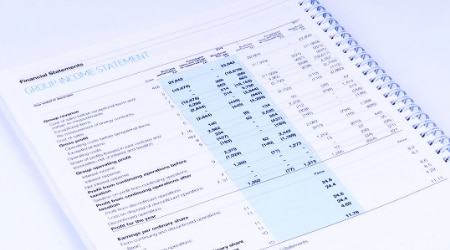Method 2: The Actual Costs Method
The actual cost method entails deducting each and every business-related car expense by itself. This includes gasoline, insurance, maintenance, depreciation, lease payments and more.
Claiming actual costs requires solid record keeping and holding onto receipts. You can do this manually with pens and papers, or automatically track and categorize expenses with accounting software like QuickBooks.
Some expenses, such as gas and maintenance, are relatively easy to track as long as you hold on to your receipts. Other actual costs, such as depreciation, can become quite complicated. Here’s an example of how you figure out depreciation for a $10,000 vehicle:
You buy a $20,000 car (congratulations!). You realize that your car won’t provide all its value in the first year, because you plan to own it for more than a year. Since it provides you value for the entire time you own it, you must manually account for that value over time.
That’s depreciation. There are many ways calculate an asset’s depreciation, but the easiest way —is by using the “straight-line method.” This is the total cost divided by the number of years (maximum of seven years from the point the car has been put into service).
If you depreciate a $20,000 car over seven years (the maximum number of years allowed), that’s $20,000 / 7 = $2,857 per year depreciation expense. Keep in mind, however, that you can only deduct the business-related portion of the depreciation expense. If you used the aforementioned car for business 60% of the time, then you can only deduct 60% of $2,857, or $1,714.
There are other things to keep in mind when using the actual expenses method. Should you decide to claim depreciation, the vehicle will also have to meet weight and type requirements. On top of that, once you use the actual costs method, you will not be allowed to use the standard mileage rate for any following year.
If this sounds confusing, that’s because it is. That’s why most people decide to use the standard mileage method.
















